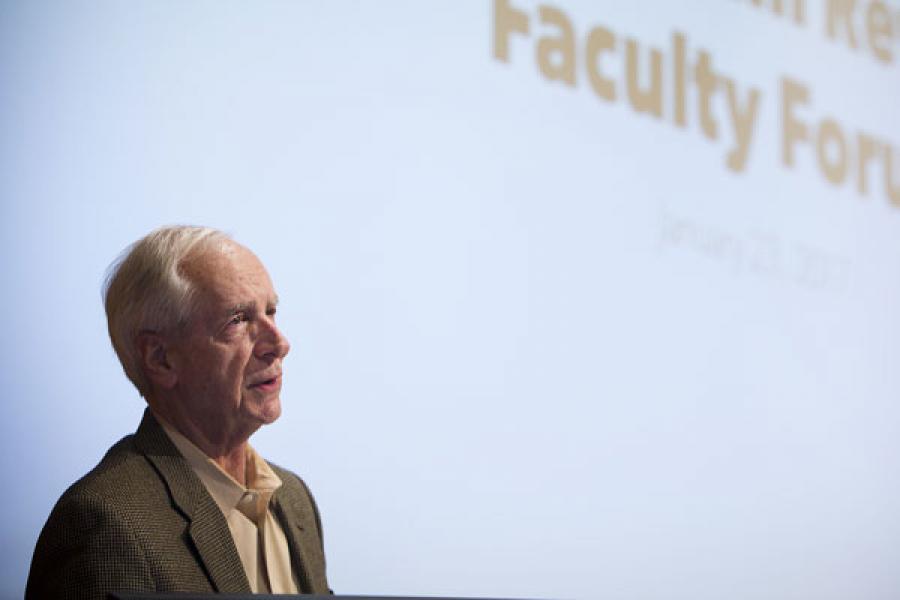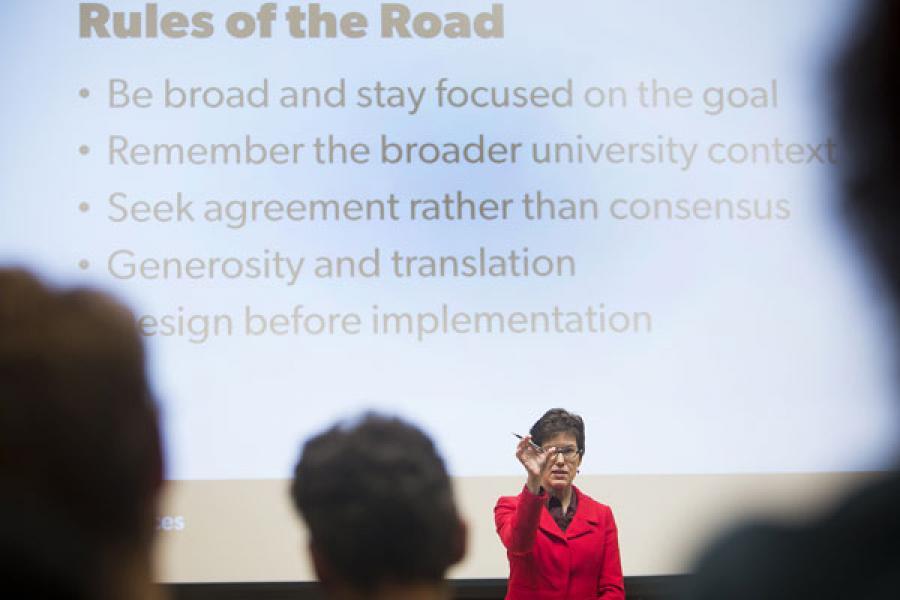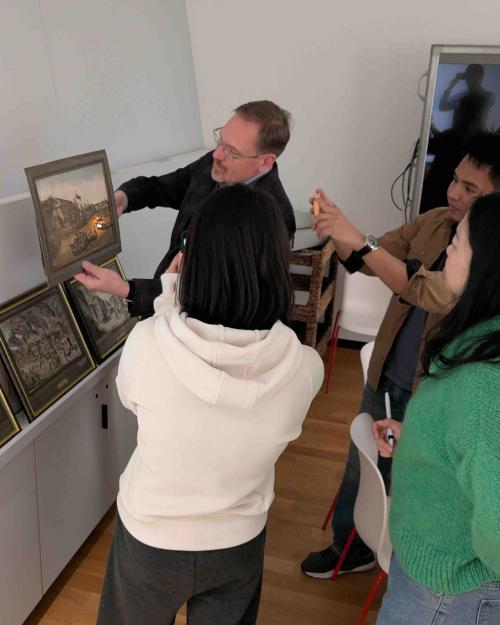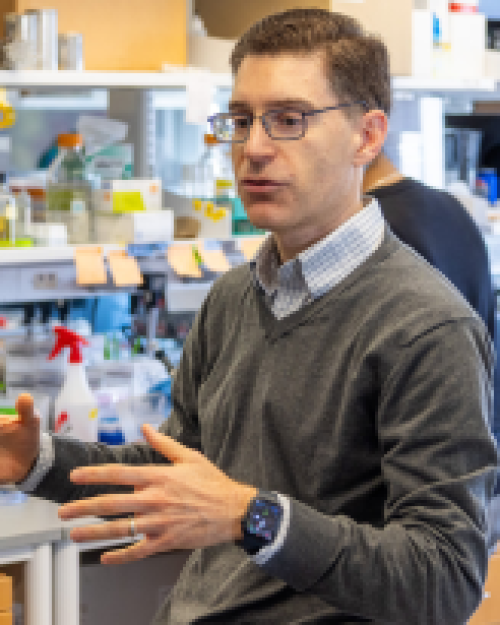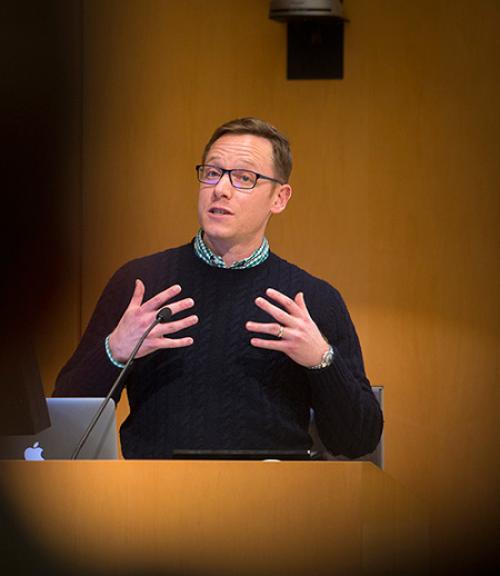“The curriculum belongs to the faculty, 100 percent,” declared Interim President Hunter Rawlings at a faculty forum Jan. 23 in the Rhodes Rawlings Auditorium in Klarman Hall. “This is a principle that is essential at every university.”
The forum was held to discuss curriculum reforms being explored by the College of Arts & Sciences, including discussions about the mission of a liberal arts and sciences education today and the ways in which graduation requirements reflect and support that mission. Faculty from Arts and Sciences departments shared with the College of Agriculture and Life Sciences and the ILR School, as well as School of Computer and Information Science faculty, were invited to attend; about 150 people were present.
“The question of what a student should know is fraught with intellectual, ethical and cultural complexity,” said Rawlings, who also is a professor of classics. “[The College of Arts & Sciences] is particularly important in this respect because it has most of the core departments of Cornell University…It is the college that is central to the curriculum and to the identity of the university as a whole. That’s why I think it’s so important for this college to address this as well as it possibly can and as seriously as it possibly can.”
Hunter Rawlings, interim president and professor of classics
Gretchen Ritter, Harold Tanner Dean of Arts & Sciences, said that it is historically and socially a good time to be asking questions of the curriculum. “One of the most important things we do is to educate students. How can we help them to be scientifically literate, ethically oriented, able to navigate a changing world, and able to contribute to large scale problems that we’re facing, whether around climate change or social inequality?”
Over the last semester, the Arts & Sciences Curriculum Reform Committee (CRC) conducted extensive outreach to solicit feedback, through college-wide meetings and focus group conversations. The curriculum liaison group, made up of representatives from all of the college’s departments and programs, held discussions within individual departments and programs. Other groups of faculty, particularly the humanities chairs and members of the arts and humanities task force (CIVIC), have also been exploring curriculum ideas. More than three hundred faculty members and students have participated in these conversations.
Based on this feedback, the CRC drafted essential components and three evolving frameworks, while the liaison group drafted a “Principles of a Liberal Education.”
The CRC will now begin developing a proposed framework for a new college curriculum – including principles, goals, and an overall statement of requirements -- which they hope to present for feedback by the end of February. Their goal is to have a final framework ready to bring to a faculty vote by the end of the spring semester, although more work will need to be done over the 2017-2018 academic year to specify and implement the new curriculum framework.
“The committee has been unbelievably productive and busy,” said Ritter. “I am impressed by the level of faculty engagement and encouraged by the commonality we see emerging from the different groups.”
Gretchen Ritter, Harold Tanner Dean of Arts & Sciences
In her opening remarks, Ritter announced that Laura Brown, John Wendell Anderson Professor of English, would be stepping down as chair of the Curriculum Reform Committee (CRC). She has served in this position since the CRC was established in January 2016.
“Laura has been an exemplary leader of the curriculum effort and achieved a tremendous amount in a short space of time,” said Ritter. “We are very grateful she was willing to serve in this position.”
The new chair of the CRC for the spring semester will be Thomas Pepinsky, associate professor and active member of the CRC. "I'm excited to help bring our curriculum discussions forward,” said Pepinsky. “I've been impressed at how engaged our faculty have been with the process so far, and we now have a great opportunity to shape liberal education at Cornell for years to come.”
At the forum, Pepinsky discussed five important components of a liberal education that the liaison group found faculty held in common: a sense of student ownership of the curriculum; that there is no one type of student; that it emphasizes foundational knowledge across different modes of inquiry; that it embodies interdisciplinarity; and that students should be transformed by their experience at Cornell.
“We’re working together to create a curriculum that we can all agree on and be enthusiastic about,” said Pepinsky.
Kim Weeden, chair of the Department of Sociology and Jan Rock Zubrow ’77 Professor of the Social Sciences, pointed out some potential points of agreement among the four curriculum models under discussion. “All of the models emphasize the need to simplify the distribution requirements, and to clearly convey how distribution requirements meet the goals of a liberal education," she said. She also noted significant agreement on the importance of cross-disciplinary thinking, and on the need to think carefully about when students take general education requirements during their undergraduate education, not just what they take.
The liaison group is working with their departments and programs on draft proposals for foundational courses for consideration, which will soon be made available for review. Charles Aquadro, Charles A. Alexander Professor of Biological Sciences, described his Personal Genomics and Medicine class as one example of what a foundational course could be like. The class explores the scientific, social, legal and ethical aspects of genetics; with no science prerequisite, the course emphasizes writing and discussion and draws on experts from numerous disciplines.
“One of the most enriching experiences I’ve had is to reach out and see how my field interacts with others across campus,” said Aquadro.
Derk Pereboom, the Susan Linn Sage Professor in Philosophy and Ethics and the Stanford H. Taylor ’50 Chair of the Sage School, offered another perspective on foundational courses, which he defined as “courses that introduce students to core methodologies, works and ideas.” He offered Challenges Confronting Our World as an example of an interdisciplinary course which could be structured around important topics like climate change, race or inequality. A course on the problems and prospects of democracy, for instance, might include the points of view of political theory, economics, sociology, history, literary criticism, and more.
“At Cornell, it makes sense for at least one aspect of our identity to be answering and proposing solutions to the great challenges that humanity is currently facing,” Pereboom said.
A version of this article appeared in the Cornell Chronicle.
